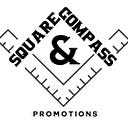Freemasonry & Financial Considerations

Introduction
Recent events within the financial world (particularly within the United States…particularly within Silicon Valley) led Square & Compass to consider a question which (based on our experience) too few Masonic Lodges and Buildings ask:
- Are Masonic Lodges and Buildings Financially Secure?
There is no one answer to the above question; it is based on the unique circumstances of individual lodges and buildings. However, each lodge or building will grapple with similar considerations when answering this question. These considerations include:
- Income
- Expenses
- Asset Protection; and
- Long-Range Planning and Budgeting.
Income
Income in a masonic lodge context usually references membership dues, although some Lodges will have additional income from investments or windfalls (such as a bequeathment or gift).
Income in a masonic building context usually references assessments (from the lodges or bodies therein), although some buildings will have additional income from event rentals, business/residential tenancies, or the receiving of public or private grants.
Income in either context is susceptible to perturbations: dues’ income rises or falls as membership rises or falls; investment income rises or falls based on the financial climate (itself susceptible to perturbations); windfalls are, by their nature, unreliable.
Assessment income is dependent on the strength of the individual lodges/bodies using the Masonic building; event or rental income is subject to economic and social factors; this being especially noticeable as a consequence of COVID-19 related health-measures (which resulted in many masonic buildings losing income).
Considerations: Do you know your Masonic Lodge’s annual income? Do you know to how much of that income is derived from dues vs. other sources?
Do you know the annual income of the Masonic building in which your lodge/body meets? Do you know how much of that income is derived from assessments vs. other sources.
Expenses
Expenses in a masonic lodge context may refer to assessments paid to the building in which it is located, refreshments, expenses, benevolence payments, social events, insurance, etc.
Expenses in a masonic building context will usually refer to those expenses consistent with other community, heritage, and historical buildings. This could include: maintenance and general upkeep, utilities and other such bills, insurance, property taxes, etc. One significant consideration many masonic buildings are historical or heritage buildings.
Being a historical or heritage building can create additional income opportunities (such as public or private grants and tax incentives) as well as additional liabilities (such as increased maintenance or utility costs).
Considerations: Do you know the annual expenses within your Masonic Lodge? Do you know the various sources (and the percentages) of those expenses?
Do you know the annual expenses of the Masonic building in which your Lodge meets? Do you know the various sources (and the percentages) of those expenses?
Do you know the age of the Masonic building in which your lodge/body meets?
Account Protection
The recent Silicon Valley Bank Collapse, and the governmental response, resulted in many news-stories regarding deposit insurance and the extent to which account balances are protected in case of financial institution failure.
The amount(s) contained within a masonic lodge’s or building’s bank account(s) will depend on the income and expense factors referenced above; but it is worth asking to what extent that amount(s) is protected.
In Canada, the Canada Deposit Insurance Corporation (CDIC) automatically insures eligible amounts of up to $100,000 (CAD) deposited at CDIC member institutions. The insurance covers the following types of insurance: savings and chequing accounts; Guaranteed Investment Certificates (GICs) and other term deposits; and foreign currency (for example, USD). You can find more information here.
In the United States, the FDIC (Federal Deposit Insurance Corporation) protects bank depositors against the loss of their insured deposits of up to $250,000 USD in the event that an FDIC-insured bank or savings association fails. You can find more information here.
A financial expert can advise your masonic lodge or building on ways to protect amounts above those prescribed, and should always be consulted.
Considerations: Do you know the amount deposited in your Masonic Lodge’s account(s)?
Do you know the amount deposited in your Masonic Building’s account(s)?
To what extent are these amounts protected?
Does your Masonic Lodge have assets contained in “riskier” investments, such as cryptocurrency, and at what percentage?
Long-Term Financial Planning & Budgeting
Income, Expenses, Assets, Deposit Insurance…all of the above should be considered by a masonic lodge or building when creating a long-term financial plan & budget.
Creating a long-term financial plan or budget is of vital importance to the overall long-term health of your Masonic lodge or building (it can also be used, in Ontario, to apply for the Grand Lodge’s Cornerstone Program).
Creating a plan or budget can and should be an activity that involves the Lodge as a whole, including newer members. Creating the same will also help plot the course for the Lodge or the building.
Considerations: Does your Masonic Lodge have a long-term financial plan or budget? Does your Lodge update it annually? Does your Lodge present the plan or budget within a business or general purpose meeting? Does your Lodge have the plan or budget available for review upon request by a member?
Does your Masonic Lodge or Building have connections with auditors, or is involved with or consulting financial experts?
Disclaimer: When making financial decisions, it is best to consult with financial professionals and/or seek legal assistance.
All opinions expressed are those of Square & Compass Promotions and do not necessarily reflect the opinions of the Windsor Masonic Temple and/or any other masonic organisation.
